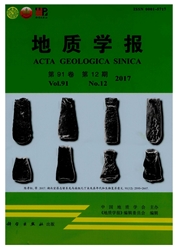

 中文摘要:
中文摘要:
温度是影响核磁共振弛豫的一个因素。目前国内各实验室所做的核磁共振实验测量大都局限在室温下,实验温度与地下储集层温度有很大差别,因此有必要研究温度对流体及饱和流体岩石的核磁共振弛豫的影响,提高核磁共振测井资料评价精度。本文选取自由水、不同粘度脱气原油、饱和水以及饱和变压器油的储层贝瑞砂岩和储层碳酸盐岩样品进行核磁共振变温实验,测量温度从25℃变化到90℃。结果表明:自由水和原油的核磁共振横向弛豫时间(T2)都随温度的升高而增大。温度对饱和水贝瑞砂岩和碳酸盐岩核磁共振弛豫的影响不同,饱和水贝瑞砂岩核磁共振横向弛豫时间随温度升高而减小,而饱和水碳酸盐岩横向弛豫时间随温度升高而增大。无论是饱和油的贝瑞砂岩或是饱和油的碳酸盐岩,其核磁共振横向弛豫时间都随温度升高而增大。温度对核磁共振弛豫的影响,会造成室温下得到的横向弛豫时间截止值(T2cutoff)与储层温度下的实际值有偏差,影响储层束缚水饱和度和渗透率的计算结果,建议在核磁共振测井资料解释及应用时应考虑温度的影响。
 英文摘要:
英文摘要:
Temperature is one of the factors that affect nuclear magnetic resonance (NMR) relaxation. At present, NMR experiments are usually performed at room temperature in domestic laboratory. It is very different from reservoir temperatures which can be higher than 100℃. Temperature effect on NMR relaxation time for bulk fluids and fluid saturated rocks should thus be studied in order to improve the result of NMR logging evaluation. In this paper, bulk water, degassed oils with different viscosity, wate〉saturated and oil-saturated Berea sandstone and carbonate were selected to perform NMR experiments at temperatures ranging from 25℃ to 90℃. The results show that, the T2 relaxation time for bulk water and oil samples increase with increasing temperature. Temperature effect on NMR relaxation between water-saturated Berea sandstone and carbonate are different. The T2 relaxation time for wate〉saturated Berea sandstone decreases with increasing temperature. However, the T2 relaxation time for wate〉saturated carbonate increases with temperature. The T2 relaxation times for both oilsaturated sandstone and carbonate increase with temperature. The consequence of the temperature dependent behavior of the T2 relaxation time is that the T2cutoff determined at room temperature in the laboratory is different from the real value at the reservoir temperature, which will result in bad result of irreducible water saturation and permeability. It is suggested that the temperature dependence of T2 relaxation should be considered in NMR logging interpretation and application.
 同期刊论文项目
同期刊论文项目
 同项目期刊论文
同项目期刊论文
 期刊信息
期刊信息
